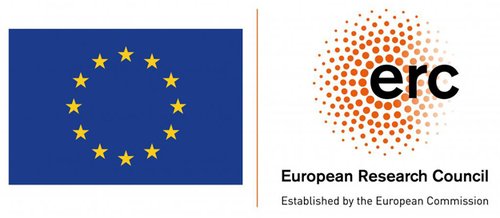The Smart Forests Atlas is a living archive and virtual fieldsite exploring how digital technologies are transforming forests.
The Smart Forests Atlas is a research platform developed through the Smart Forests research project, which investigates the social-political impacts of digital technologies that monitor and govern forest environments. Our research project considers how forests and technologies are co-constituted. Rather than advocate for smartness, we question how and why forests are becoming technologically optimised to address environmental change.
The Atlas platform includes open data from the Smart Forests project, and provides tools for researchers, stakeholders and publics to gather, explore, analyse, annotate, reflect on and reimagine smart forest knowledges and technologies. Atlases have historically been used as colonial tools to mark out territory and delimit certain bodies’ movements through space. The Smart Forests Atlas seeks instead to open multiple trajectories and connections across plural knowledges and open data co-emergent with smart forests.
The site draws on and extends practices of "digital gardening." Rather than presenting finished ideas, the Smart Forests Atlas is a space for cultivating ideas publicly and sharing multimedia content. It will grow visibly over time and interweave different perspectives, thereby generating possibilities for critical reflection, practical relations, and epistemic justice.
Moving around the Atlas
Rather than providing set guidelines for navigating the Atlas, we encourage wandering, lingering, returning and re-traversing the site. Four interconnected wayfinding tools underpin the organization of the site.
- Logbooks record and reflect on existing smart forest projects developed by scientists, communities, and artists, linking to multimedia content and open data.
- A Radio gathers interview podcasts with smart forest practitioners, field recordings and more-than-human soundscapes.
- A Map offers a spatial and visual representation of smart forest geographies and their connections.
- Stories situate and contextualise smart forest projects and Atlas materials through expanded narratives.
Different parts of the site are connected through a continually changing heat map of tags. By bringing together emerging digital technologies that sense, respond to, and reconstitute forests, the Atlas offers tools for attending to the complex socio-political impacts of smart forest technologies and how they reconfigure human, nonhuman, and environmental relationships.
This project has been developed in collaboration with the digital tools cooperative, Common Knowledge. It was first launched at the Participatory Design Conference in August 2022 and at The Forest Multiple symposium in October 2022.
We are in the process of translating selected Atlas content into several languages other than English. Stay tuned for updated content initially in Portuguese, Spanish, and French.
Participate
We invite participation in the Smart Forests Atlas. If you know of or are involved in a project using digital technologies in forest environments and would like to contribute to the site, please write to us at info@smartforests.net for an account.
If you have received your account information, you can find instructions on how to use the Atlas in A Short Guide for Participants on our GitHub repository.
This website includes a public API of all content. Read the OpenAPI documentation and also check out the Wagtail API usage guide.
Smart Forests
For more information on the Smart Forests project, contact Prof Jennifer Gabrys.
Follow us on Twitter for the latest updates on the Smart Forests project and the Planetary Praxis research group.
This project has received funding from the European Research Council (ERC) under the European Union’s Horizon 2020 research and innovation programme (Grant Agreement No. 866006).
The Smart Forests Atlas is free to use for non-commercial purposes (with attribution) under a CC BY-NC-SA 4.0 license. For more information, please read our licence

